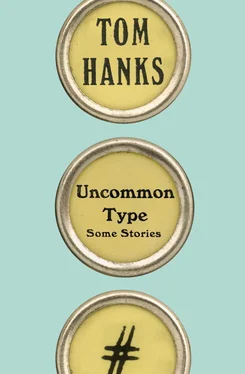—
The movers were done and gone by three, leaving Bette to the pleasure of unpacking her kitchen directly from box to drawer or shelf. She no longer had any of Bob’s gimmicky appliances, the one-use inventions he collected for his so-called culinary hobby. Bette never loved cooking, but since the split her no-nonsense meals had developed some frills. Her creamed spinach had actually gotten the kids to ask for spinach. Her ground-turkey burritos were stuffed with beans and cheese, but never fell apart when eaten by hand. The kids celebrated when Bette formalized Tuesdays as Turkeeto Night and looked forward to them every week. When the boxes were empty and the shelves looked like they made sense, Bette fired up the one appliance she truly prized, the espresso maker. Made in Germany, the stainless-steel behemoth had cost a thousand predivorce dollars, took up nearly a square yard of counter space, and sported as many gauges and valves as the submarine in Das Boot . She so loved the apparatus she often greeted it in the morning with “Hey, big boy.”
She sat down, finally, on the living room sofa with a massive mug of espresso and steamed 2 percent milk. The big window looked like a cinema screen showing a movie called I Live Here Now. A cavalcade of kids was entering and exiting the frame, a group that either lived on Greene Street or made the block their Our Gangish HQ. A towheaded girl was inspecting Sharri’s mouth like an advance agent for the tooth fairy giving an estimate of what to expect. A pack of boys set up a T-ball stand, each taking whacks with a plastic bat while others shagged the hits. Dale and another girl were dangling from the low limbs of the sycamore. Keyshawn and Trennelle must have had a sibling, a dimpled girl in braids, who was helping Ed ride her pink two-wheeler, running alongside of him as he coasted up onto the front lawn of the house across the street.
That lawn belonged to the Patel family—was that what the real estate agent said? Patel? An Indian name for sure. The Patels must have had a kid every eleven months, judging from the black hair and brown skin of five kids out there, each a perfect match of the brother or sister, just a head shorter. The older Patel girls had iPhones or Samsungs, which they checked every forty-five seconds. They took a lot of pictures of Eddie on the pink bike.
Bette tried to count all the kids, but like with a school of fish in an oversize aquarium, the roiling action made it impossible. Call it a dozen children out there, teeming, laughing, bolting to and fro in varying shades of flesh.
“I’ve moved into the UN,” she said to no one. That struck her as something to tell Maggie, her oldest friend and the woman who had coached her through every step of the shattering of her marriage—from that first pop to the reality of her desperate unhappiness, the separation-of-no-return, the search for a lawyer, and the three-plus years of Marriage Dissolution mumbo jumbo and nights of red, red wine. Her phone was in her purse, sitting in the middle of the living room floor. She was reaching for it when she saw Paul Legaris coming up her driveway.
He was an older fellow wearing baggy cargo shorts and a faded red T-shirt with a crinkled Detroit Red Wings logo. He wore glasses that were a tad too angular and hip for a man his age, which Bette figured was around eight years her senior. He had flip-flops on his feet; it was summer, after all, but since it was a weekday, Bette took the lack of shoes to mean that here was a guy between jobs. Though maybe he worked nights. Maybe he’d won the Powerball. Who knew?
Paul was carrying a bag containing a HoneyBaked ham—this was not one of Bette’s pops; the brand was advertised on the bag. Though the front door was wide open—it had been all day, what with movers and kids streaming in and out like subway patrons—he rang the doorbell without a follow-up of “Anyone home?”
“Howdy do?” Bette offered, stepping to the threshold.
“Paul Legaris. Your next-door neighbor,” he said.
“Bette Monk.”
“Though I come in no official capacity,” he said, holding out the ham bag, “welcome.”
Bette eyed the HoneyBaked. “You know, with a name like Monk…” She let that trail off. Paul looked confused, like an actor who had dropped a dialogue cue. “I could be a Jewish mother,” Bette said.” “A bag of pork would then be…”
“Treif.” Paul knew his lines after all. “Forbidden.”
“But I’m not.”
“Okay then.” Paul offered the sack and Bette took it. “When I moved in, someone on the block left one on my welcome mat and I lived off the thing for weeks.”
“Thanks. Can I offer a coffee in kind?” Bette did not really want to spend any more time with her neighbor, a single man (she had clocked his lack of a wedding band), who, by living right next door, was the only unanticipated and undesired reality of her new life on Greene Street. Still, she had to be polite.
“Nice of you,” he said, remaining on the porch, on the other side of the plane that was the open door. “But on moving day you must have a million chores on the punch list.”
Bette appreciated the decline. She did have a million things to do. She nodded toward the pack of kids out on Greene Street. “Any of those yours?”
“Mine live with their mother. You’ll see them come the right weekend.”
“Got it. Thanks for this.” She nodded at the ham in the bag in her hand. “Maybe some ham-bone soup, come Friday.”
“Enjoy,” Paul said, beginning his retreat from the porch. “Greene Street will be good to you. Has been for me. Oh…” He turned back, stepping once again into the doorway. “Are you doing anything tonight?”
Are you doing anything tonight?
Bette had heard those very words too many times in the last few years. Are you doing anything tonight? From men divorced, single, unattached, and lonely—guys who had kids who lived with ex-wives, who lived in apartments, who searched Internet dating sites for any kind of intellectual or romantic or sexual hookup. Guys who took one look at her and thought, I wonder if she is doing anything tonight.
Pop!
The vision: Paul is keeping an eye out his window, looking to see when Bette Monk, divorced, attractive (still) pulls into the driveway right next door. When she does he saunters over with an excuse to take up some of her time—a piece of her mail that accidentally came to his box, word of a lost dog in the neighborhood, concern for Eddie’s sprained ankle. He’ll linger too long, chat too idly with a look on his face hinting of neediness.
Bette’s mind processed the vision, the very first blemish in the fabric of her new life on Greene Street—the guy next door looking for a woman.
“I’m busy with the house,” she said. “Lots to do.” She drank some of her coffee.
“Nine or so I’m setting my telescope up,” Paul said. “There’s a partial lunar eclipse tonight that will max around a quarter after. Nice red shadow of the earth will cover about half the moon. It won’t last long, but you could have a look.”
“Ah,” Bette said, leaving it at that.
Paul flip-flopped off the porch and across the lawn, just as Sharri came bounding up with something small in her hand, a little pebble of pure white.
“Mom! Look!” Sharri squealed. There was some blood on her fingers. “My tooth!”
—
In the dying light of that first afternoon, the street quieted down as everyone broke for various family suppertimes. Bette fed the kids ham slices and a salad of lettuce and tomatoes that had made the move from the condo. Earlier, Darlene Pitts, the mother of Keyshawn and Trennelle, had brought a basket of flowers picked from her own garden along with a card asking Won’t you be my neighbor? As they were chatting on the porch, her husband, Harlan, showed up with two big bottles of Sprite and Diet Sprite. Together they gave Bette the rundown on some of the neighbors.
Читать дальше











